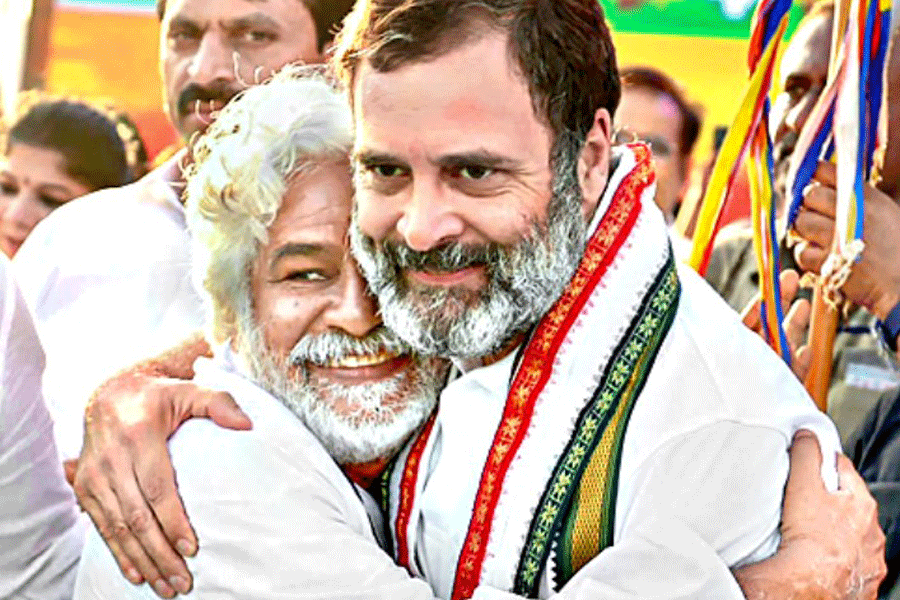Renowned Telangana folk singer and revolutionary balladeer Gaddar passed away at a Hyderabad hospital on Sunday while undergoing treatment for a heart ailment, marking the end of an era for a generation of Telugu youths who found their voice against discrimination and deprivation through his songs. He was 77.
Gaddar, born Gummadi Vittal Rao at Toopran in Medak district, was known for his revolutionary songs during the 1980s and later during statehood agitation.
He co-founded the Jana Natya Mandali, the main Telugu cultural troupe of the undivided CPIML in 1972 and was recognised by his attire of a dhoti, red shawl and staff.
After years of living in the grey zone between Naxalite politics and parliamentary democracy, Gaddar focussed on statehood for Telangana after 2010 with his Telangana Praja Front.
He shared a love-hate relationship with K. Chandrashekar Rao, now the chief minister of Telangana, who had emerged as the main leader of the movement back then. Gaddar’s song Podustunna Poddumeeda from the 2011 film Jai Bolo Telangana! in which he starred alongside now Union minister Smriti Irani and Rao became the anthem of the statehood movement.
Gaddar was expelled from the banned CPI (Maoist) in 2016 at a time he openly spoke in favour of electoral politics over armed struggle and championed Ambedkar’s social justice in addition to communism.
Just before voting for the first time in his life in the 2018 Assembly polls, he told The Telegraph: “(The) ultimate struggle people have to do will be under the red flag in the world. In the intermediate period, they have to take the path of Ambedkar… The defensive strategy of the people, not just any party, is the vote. I took the Constitution and the slogans of Save India, Save Secularism and I am able to go to every nook and corner as a poet. I used to sing about arms, and reached only a few.”
An iconoclast in every sense, Gaddar trained as an engineer and worked in a bank before becoming a full-time balladeer. Despite his grounding as a communist, Gaddar rarely stuck to any line or party including the ones he started. In the last few years, Gaddar turned spiritual, making public visits to temples.
His last public appearance was at a Congress meeting in Khammam with Rahul Gandhi barely a month after he announced the formation of his own Gaddar Praja Party. Rahul condoled his death on Twitter (now X).
Last year, Gaddar participated in the Bharat Jodo Yatra while at the same time backing evangelist K.A. Paul’s Praja Shanti Party in the Munugode bypoll. Before that, he was seen at the BJP’s national executive meeting in Hyderabad. His son G.V. Surya Kiran joined the Congress in 2018.
His justification was that he would take up issues of caste violence, economic injustice, communalism, and human rights violations in every platform that he got, a task he continued even after a failed assassination attempt on him in 1997 that left a bullet stuck near his spine. He blamed the police for the attack.
Although the revolutionary spring of the 1970s in the Telugu literary world is in its winter, the doyens of that generation like Gaddarcontinue to retain their halo. This was evident from the condolences across the Telugu political spectrum that poured in for Gaddar on Sunday.










